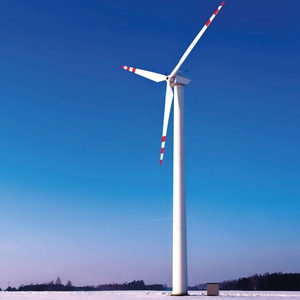
On January 31, 1999, Kofi Annan, Secretary General of the United Nations, officially invited the leaders of the world economy to sign a "Global Pact" to tackle the most critical aspects of globalization. "A real international watershed in terms of sustainability", says Marco Frey, President of theGlobal Compact Network Italy (GCNI).
2001 was the year of the launch of the Global Compact, an initiative managed by the United Nations to promote a culture of corporate citizenship. "Over time, the focus on sustainability is growing more and more" - continues Frey - "as demonstrated in 2012 by the Rio+20 Conference: Here, the presence of the business world becomes significant". The same can be said of the Paris Agreement on Climate Change of 2015, with a significant process of joining companies to the Agenda 2030 that set the 17 Millennium Goals. And on the reason of the request to increase the involvement of companies, compared to institutional actors, the chairman of GCNI has no doubts: "It is a necessity, institutions alone cannot do it".
"Today, we have reached the point when sustainability profoundly affects the competitive choices of a company," says Professor Frey, who identifies the reason for this trend that has developed a new sensitivity to sustainable development for all actors, without underestimating the dynamics triggered by the sustainable choices of competitors and the authoritative appeal of the United Nations internationally. "Sustainability is a model of economic development that is now considered necessary".
"Today, the company’s capability to adapt to the challenge of sustainability means changing business models”. On the one hand, new operators are born with business models built specifically for them: like TESLA, that is no longer just a manufacturer of electric cars, but it’s also involved in renewable energy to power them. On the other hand, these are simple transformations of business models by companies operating in traditional sectors: for example, in the energy sector the most sensational case is that of Erg, which has completely abandoned the traditional sector of Oil & Gas to engage in renewables".
The matter becomes more complex, especially for large companies that decide to be sustainable in the many countries in which they operate: "In this case" - the expert points out - "companies try to apply business models that are homogeneous, but we must take into account the peculiarities and needs of different territorial contexts. It is an interesting and very complex challenge, because in developing countries, the social dimension of sustainability becomes an essential condition".
Finally, there is a third element, that according to Professor Frey, companies should never underestimate: "The ability to be adaptable to the dynamics of market evolution passes through the ability to combine innovation and sustainability. Many studies and researches show that there is a close correlation between these three factors: sustainability, innovation and internationalization".
The first Maire Tecnimont Sustainability Report
Creating Value is the title of the Sustainability Report for 2017 approved by our Group. The document shows our commitment to sustainability for the first time in a comprehensive manner, both as a creator and a distributor of value in different geographical areas.
We are aware that our role as a general contractor with a highly technological DNA enables us to have an impact on the areas in which we operate. The Sustainability Report is prepared is prepared according to the guidelines of the Global Reporting Initiative (GRI), the most advanced international standard, provides a precise picture of the key role we can play in these environments, this offering not only high-level services to our customers but also opportunities for local development.